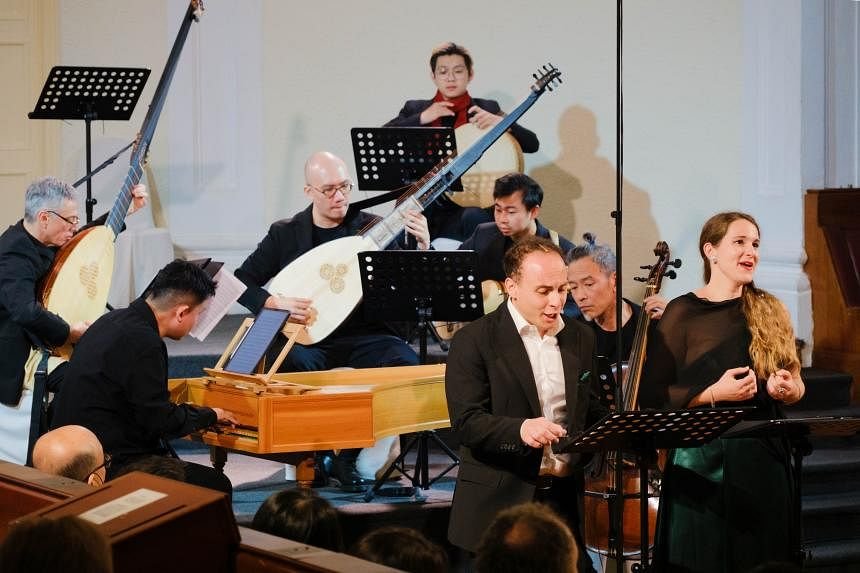Concert review: Red Dot Baroque and La Risonanza’s dizzying showcase of Italian musical invention
Straits Times, 1 Feb 2024
Sprezzatura is an Italian term describing actions accomplished with a carefree, almost nonchalant ease.
In the case of classical music, Italian contributions during the Baroque era have been priceless. The terms symphony, concerto, sonata and aria all have Italian roots and origins.
This concert by Red Dot Baroque (RDB), in partnership with three members from Baroque ensemble La Risonanza from Milan, was a wonderful showcase of Italian originality and invention.
The show was presented in five acts centred on the cities of Mantua and Venice, with a dizzying array of instrumental and vocal music, mostly unfamiliar to local listeners.
No Antonio Vivaldi, Arcangelo Corelli or Giuseppe Tartini here. Instead, the first act opened with excerpts from Claudio Monteverdi’s Orfeo, considered to be the first important opera.
A procession of RDB players trooped down the chamber’s central aisle with the Toccata and settled with La Musica, before guest soprano Maria Chiara Adolino sang her first aria Dal Mio Permesso (My Beloved Permessus), and tenor Angelo Testori registered with Rosa Del Ciel (Rose Of Heaven). Both were heartfelt readings, and they had just begun.
The second act saw the rare appearance of the sackbut, forerunner of the trombone, in Giovanni Picchi’s Canzon Terza, played by Don Kow, accompanied by violin, cello and harpsichord.
Two theorbos (long-necked lutes) accounted for Giovanni Kapsberger’s Capona, a steady partnership of Risonanza’s Gabriele Palombo and RDB’s Christopher Clarke, before Testori’s musing of Giulio Caccini’s Amarilli, Mia Bella (Amaryllis, My Lovely One). This was clearly a misty-eyed love song.
RDB founder-leader Alan Choo helpfully provided an impromptu mini-history of early Baroque music, describing techniques employed in the all-instrumental third act. These included the notated tremolos in Biagio Marini’s La Foscarina and echo effects in Dario Castello’s Sonata XII.
The most substantial and moving segment was the fourth act titled Songs Of Loss. Testori’s performance of Francesco Cavalli’s Misero, Cosi Va (Wretched Goes He) was an unnerving lament on unrequited love, applicable even in modern times.
Adolino’s totally riveting reading of pioneering woman composer Barbara Strozzi’s Hor Che Apollo (Now That Apollo Rests) was from a man’s point of view. It made for no easy listening especially when one knows that impending death is looming. Marini’s Passacalio, also in a minor key, made for a seamless instrumental exit of the doomed protagonist.
The final act was thankfully more upbeat, with Marco Uccellini’s Aria Sopra Questa Bella Sirena with two soprano recorders (Cheryl Lim and Rachel Ho) and sackbut providing much cheer. Both singers were united in Monteverdi’s Zefiro Torna (Zephirus Returns). With a dance-like pulse provided by the band, their voices celebrated the happy triumph of love.
Following Andrea Falconieri’s jolly instrumental Folias, based on a popular Iberian tune, the welcome encore was possibly the best-known Baroque duet of all, Pur Ti Miro (I Gaze Upon You) from Monteverdi’s Coronation Of Poppea. This made for a simply perfect close.

